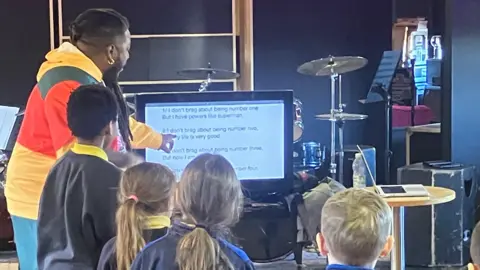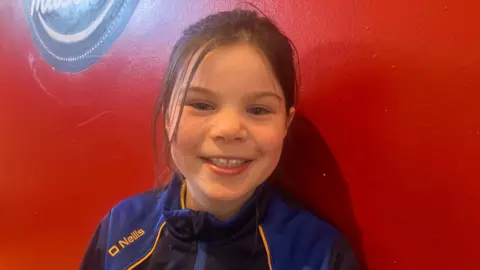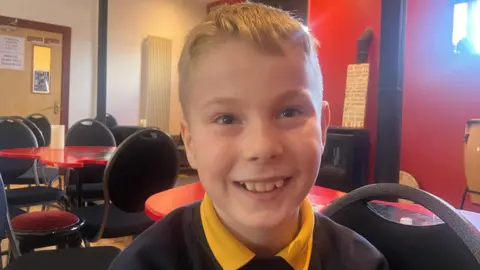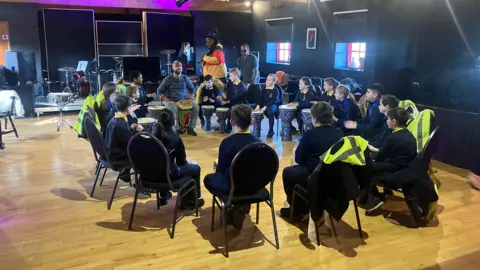Colombian musicians teach creativity to NI schoolchildren
 BBC
BBCIt is often said that music is a universal language.
And that was certainly the case in Draperstown in County Londonderry.
Pupils from St Mary's Primary came together in rhythm with visiting musicians from Colombia in South America.
The Mr Klaje Collective from Cali in the South American country rap, sing, dance, play and drum.
In their home city they use the power of music to bring former gang members together, promoting peace and reconciliation through teaching creativity.
According to guitarist Juan Manuel Gomez, music is an ideal way to do that.
"The music connects the people and secures a space to start to speak about the problems, the life," he told BBC News NI.
'It was very fun'

Along with the British Council, Dr Edwar Calderón from Queen's University of Belfast (QUB) is one of those behind the collective's visit to Northern Ireland.
"The idea is to show how different music can go together and how music put together can create a dialogue between people and bring people together," he said.
Draperstown is fortunate enough to have its own music hub in the centre of the town, run by Glasgowbury.
Around 200 young people from the area go to Glasgowbury each week to learn instruments and play music together.
So it was an ideal venue to bring the Colombian musicians together with the P5 pupils from St Mary's to make sweet music.
Nine-year-old pupil Saorla is already an enthusiastic and accomplished musician.
"I play a lot of music, I play at least four instruments," she said.
"I play the harp, and the whistle and the piano and the violin."
But sampling drumming with the collective brought a new string to her bow.
"There's different types of drums you can play," she said.
"It was very fun actually, I'd never played drums before."
For her St Mary's classmates Yusuf and Olcán, learning to rap was a hit lesson.
"It was cool and it was nice to listen to some different music," Yusuf said.
"And we learned some Spanish and we got to count to four in Spanish," Olcán added.

There have been concerns, though, that arts subjects like music can sometimes be squeezed out of primary school timetables.
A recent report from the Education and Training Inspectorate (ETI) said, for example, that many teachers were finding it challenging to "ensure that there is time for art and design within the curriculum".
That was despite the fact that creativity was found to be important in improving children's wellbeing.

St Mary's teacher Caroline McCartney said it was vital to give pupils time to take part in music, art and other imaginative and creative subjects.
"It's very important for children to get time to be creative and to express their thoughts and ideas whether it be through art or through music," she told BBC News NI.
And it is not just important for children but adults, too.
Classroom assistant Aga Mura also took the chance to dance and sing along to the Mr Klaje Collective as they worked with St Mary's pupils.
"It was absolutely fun for everybody," she said.
